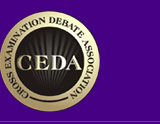Abstract
African American (read: Black) motivation to participate in intercollegiate debate was discussed at length on both the quantitative and qualitative level by Dr. Shelton K. Hill in 1996. More than three decades later, the question has resurfaced. When the Louisville project hit its apex (arguably when 13 Black youth had full debate scholarships in the early 2000s), white and traditional competitors argued that their form of debate would destroy the activity. Now that race-based, kritik, and performance styles are more widely accepted as legitimate, it is crucial that we examine the larger system of success post-debate. What resources and barriers exist for Black debaters and coaches? How have opportunities continued to be foreclosed to even the most successful debaters and coaches? What responsibilities do scholars have within the community? This paper will briefly explore the questions above and present a solution for Black excellence within and beyond the debate space. There is value in white fear. If we understand white fear as a precursor to shifts in oppression, we can preempt things like the gentrification of Black spaces.
Recommended Citation
Martin, Shauntrice
(2023)
"Fear of a Black Planet: Capturing the Benefit of White Guilt to Forward Black Excellence,"
Contemporary Argumentation and Debate: Vol. 38, Article 11.
Available at:
https://commons.lib.jmu.edu/cad/vol38/iss1/11



